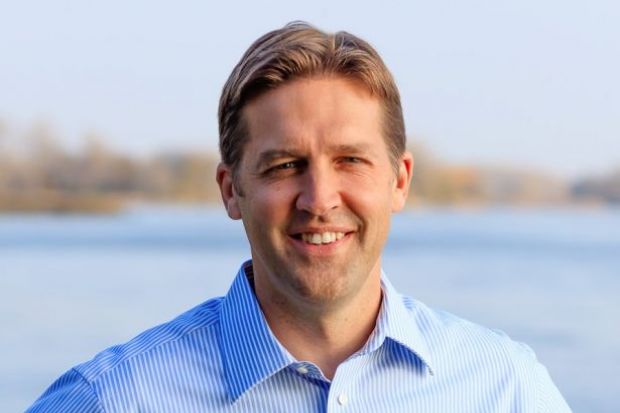The University of Florida is preparing to hire US Senator Ben Sasse of Nebraska as its next president, an established academic known in politics as one of the few major Republican critics of Donald Trump.
The presidential search committee at the 60,000-student flagship institution in the nation’s third-largest state named Dr Sasse its sole finalist, and he told reporters that he plans to quit the Senate to take the job.
While currently a politician, Dr Sasse brings an extensive academic career that includes degrees from Yale and Harvard universities, and time as a faculty member at Yale and the University of Texas, and as president at Midland University.
In interviews, the 50-year-old senator made clear his excitement at the prospect of leading one of the nation’s top-ranked institutions, with plans to focus it on improving affordability and job-market readiness.
“The single biggest challenge our nation faces is the radical disruption of work,” the senator said in remarks distributed by the University of Florida. “Lifelong work in one sector will never again be the norm for most Americans, and therefore lifelong learning must necessarily become the norm for most Americans.”
The eight-year senator also comes to a position steeped in political intrigue. Florida’s governor, Ron DeSantis, is considered a leading contender for the US presidency in 2024, thanks in part to a reputation for Trump-style attacks on academic expertise. And the university’s current president, Kent Fuchs, announced his move into a faculty position after numerous incidents of political interference that included Mr DeSantis subjecting students and faculty to tests of personal viewpoints, and trying to bar academic staff from countering the state in courtroom testimony.
That politicisation included a new state law that keeps secret the key early stages of the presidential selection process at any public university in Florida. Yet Dr Sasse, despite the reputation he gained in the Trump administration for standing up to a partisan populist – raising published speculation that he too might consider a presidential run in 2024 – reportedly was guided through the university’s application process by the governor’s chief of staff. Mr DeSantis also issued a public statement praising Dr Sasse’s selection.
The choice of Dr Sasse also means that the state’s top four public universities – after all facing leadership vacancies in the past couple years, stoking fears of political meddling – are largely ending up with career academics. The one exception is Rhea Law, a Republican-connected lawyer who has shown some success in convincing University of South Florida faculty that she is prioritising academic concerns.
University of Florida faculty gave a mixed initial appraisal of Dr Sasse, with expressions of faith in his ability to defend academic freedom tempered by a desire to first see him perform.
Like Mr DeSantis, Dr Sasse is a sharp critic of US higher education. But unlike the generally partisan character of the governor’s attacks, the senator has emphasised the need for universities to enhance social mobility and expand intellectual curiosity, with the liberal arts an essential element.
He was one of seven Republican senators to vote to remove Mr Trump from office after the president’s second impeachment trial, following the January 6 attack on the Capitol.
Dr Sasse is scheduled next week to visit the campus in Gainesville, and to be interviewed early next month by the university’s board of trustees. He just won re-election in 2020 to a second six-year term in the US Senate, meaning Nebraska’s Republican governor would pick a replacement ahead of a special election to fill the seat on a permanent basis in 2024.




